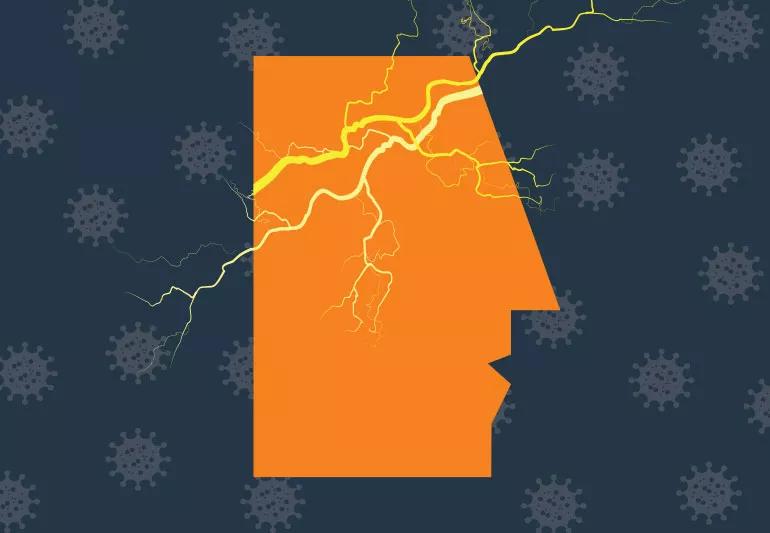The short answer from an expert

Image content: This image is available to view online.
View image online (https://assets.clevelandclinic.org/transform/d6663428-ab4f-42b4-a699-d87e8cdd36a5/covidEpilepsy-1261099130-770x553-2_jpg)
Graphic with depicting covid related epilepsy.
A: We already know there are a number of neurological complications that can be caused or complicated by COVID-19 and evidence now suggest that seizures could be another one of those issues.
Advertisement
Cleveland Clinic is a non-profit academic medical center. Advertising on our site helps support our mission. We do not endorse non-Cleveland Clinic products or services. Policy
Research has shown that, among other things, delirium and risk of stroke are both possible symptoms that come with COVID-19 infections. So it makes sense that other neurological conditions could come into play for patients and that includes seizures.
Seizures have been observed in COVID-19 patients who don’t have epilepsy but why that happens is still not fully clear.
One primary way the virus may trigger these seizures is related to how the virus enters the nervous system. It’s possible it causes a breakdown in the blood-brain barrier by producing too many cytokines, molecules that carry communication within and regulate our immune system.
We’ve seen that COVID-19 can cause events called “cytokine storms” where the virus causes the body to over-produce cytokine which can cause damage and inflammation in various organs. The effects of this inflammation on the brain could explain these seizures.
As of right now, there’s no evidence that people with epilepsy are any more at risk of contracting COVID-19 than others. But that doesn’t mean it’s okay to ignore guidelines – wearing a mask, social distancing, frequently washing your hands.
It’s critical, though, that epilepsy patients who have comorbidities, like hypertension or obesity, follow these precautions to protect themselves from contracting the virus.
Advertisement
And it’s still important, especially if you have epilepsy, to keep up with your medications and healthcare appointments during the ongoing pandemic. Providers have worked hard to ensure a clean, safe environment for patients so they can continue to receive the essential care they need.
— Neurologist Stephen Hantus, MD
Advertisement

Sign up for our Health Essentials emails for expert guidance on nutrition, fitness, sleep, skin care and more.
Learn more about our editorial process.
Advertisement
The short answer: It’s complicated, but the basic care precautions still prevail, like washing your hands and isolating if you’re sick
They can feel like a typical headache or a migraine headache, but the pain can last for weeks to months
Any large social gathering — from a family birthday party to an indoor music concert — has the potential to spread serious infection
It’s important to connect with a healthcare provider, get quality sleep and balance your activities with your energy levels
Just like the flu, COVID-19 will continue to evolve every year
The duration varies, but symptoms can linger for a few days up to a couple weeks or more
Vaccination is best for prevention, but if you get sick with COVID-19, treatments are available
The virus lives best in humans, but it can last on hard surfaces, like doorknobs and railings
Type 2 diabetes isn’t inevitable with these dietary changes
Applying a hot or cold compress can help with pain
Pump up your iron intake with foods like tuna, tofu and turkey